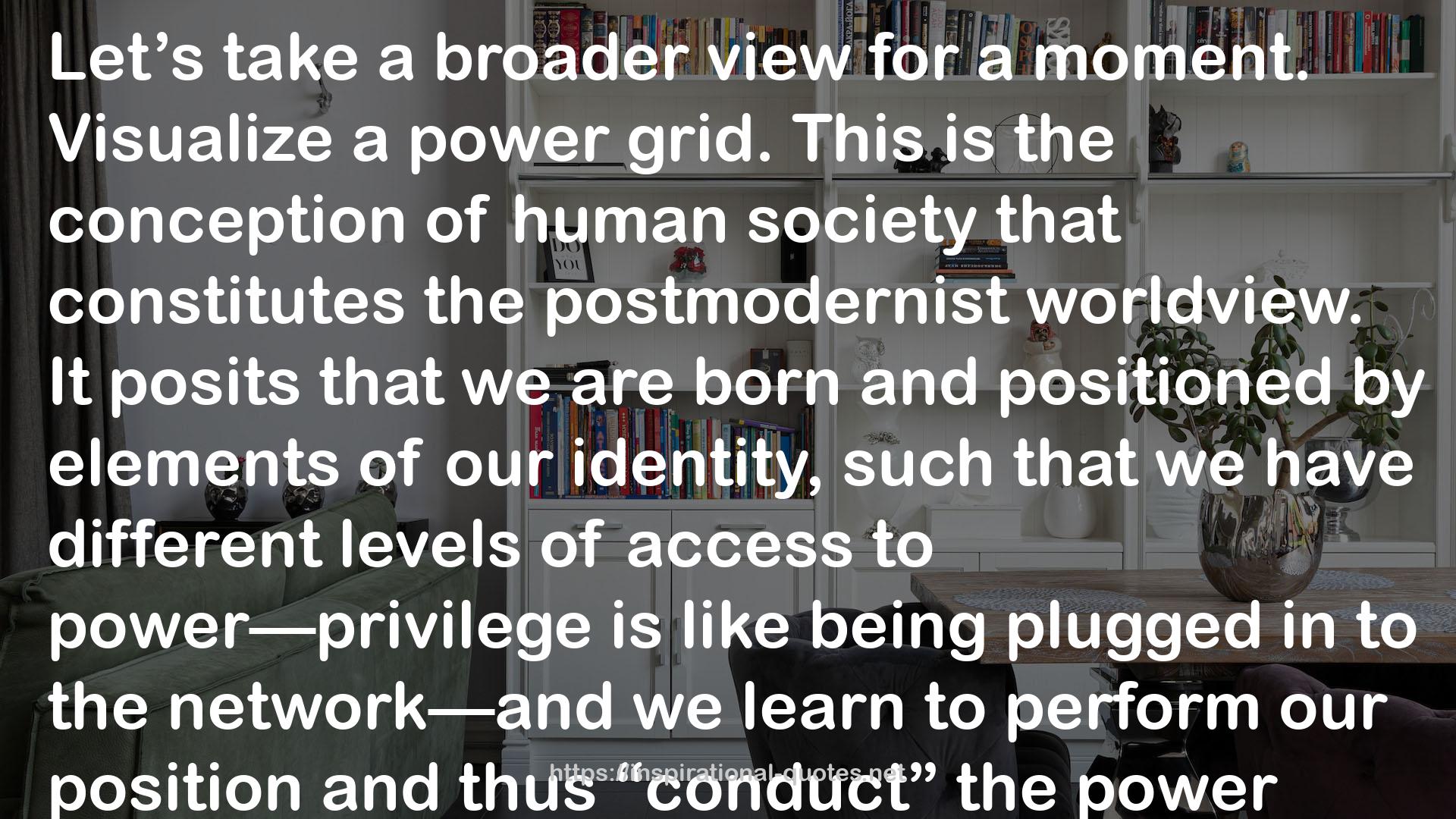" Let’s take a broader view for a moment. Visualize a power grid. This is the conception of human society that constitutes the postmodernist worldview. It posits that we are born and positioned by elements of our identity, such that we have different levels of access to power—privilege is like being plugged in to the network—and we learn to perform our position and thus “conduct” the power through ourselves as part of the system, often without ever knowing that the grid is there. This learning is achieved mostly by socialization into “hegemonic” identity roles constructed and accepted by society and is rarely intentional. By performing our roles, we uphold the social and cultural assumptions that grant and deny access to power. Furthermore, access to power has an automatically corrupting influence, which leads us to perform our roles, thus socializing ourselves and others into accepting the inequities of the system, justifying our own access, and rationalizing the exclusion of others. This is all done through discourses—ways we speak about things, including how we represent them in nonverbal media. As this conception of society, which originated in the obscure and complex language of the original postmodernists, has evolved, it has consolidated into a belief system. Thus, we frequently see Theorists state this explanation with the confidence of an objective belief—something that would not have been possible for the first postmodernists. "
― Helen Pluckrose , Cynical Theories: How Activist Scholarship Made Everything about Race, Gender, and Identity—and Why This Harms Everybody
